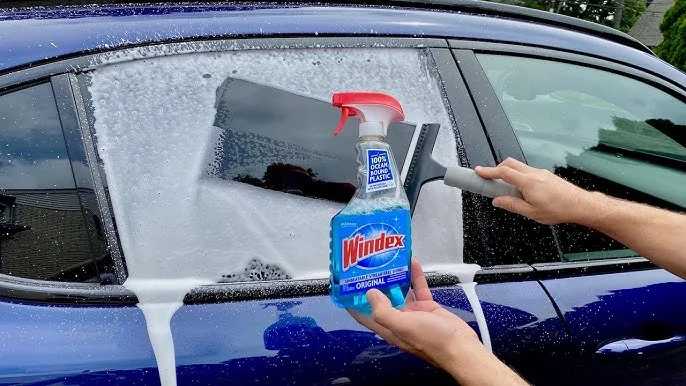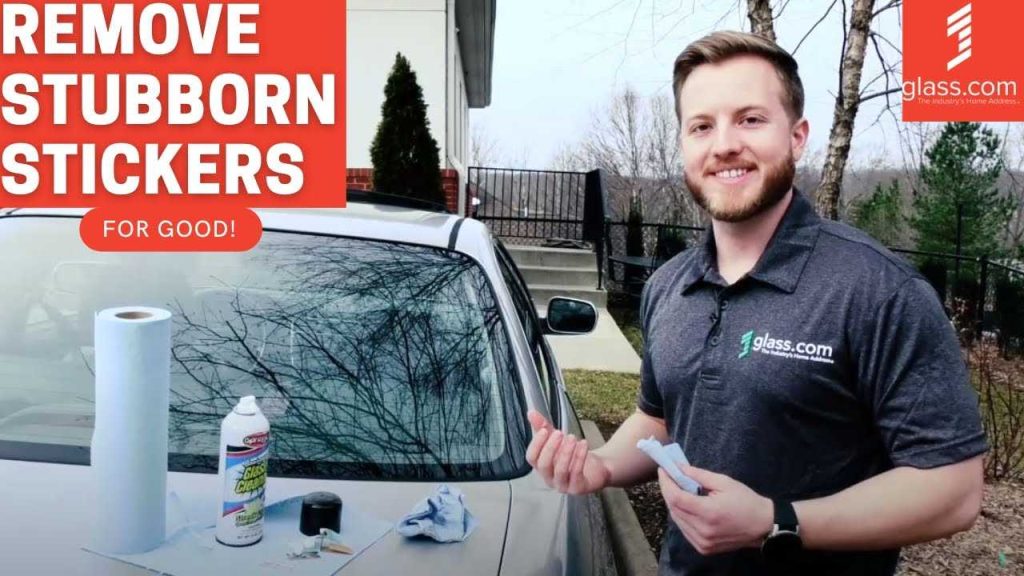Yes, you can use glass cleaner on your car’s windows and windshields, but with some caution. It’s a quick and effective way to clear grime and improve visibility, but not all glass cleaners are suitable for automotive surfaces. Choosing the right product and applying it carefully ensures your car stays streak-free and damage-free.
Using glass cleaner on your car can be a great way to keep your windows sparkling. However, not all cleaners are designed for automotive glass, and some may contain chemicals that could harm your car’s interior or outer paint if used improperly. The key is selecting a cleaner specifically formulated for automotive use and applying it correctly. This article will explore whether glass cleaner is safe for your car’s windows, how to use it properly, and what alternatives might be better to keep your vehicle looking perfect and functioning safely.
Can I Use Glass Cleaner on My Car?
Understanding What Glass Cleaner Is
Glass cleaner is a liquid formulated to remove dirt, grime, and streaks from glass surfaces. It typically contains ammonia or alcohol, which help break down grease and residues. These cleaners are designed to give a clear, streak-free shine on household windows, mirrors, and glass tables.
Why People Consider Using Glass Cleaner on Their Cars
Many drivers wonder if they can safely use glass cleaner on their vehicles’ windows and mirrors. The idea is appealing because glass cleaner often produces a sparkling, clear finish quickly. However, it’s important to understand how these cleaners interact with automotive surfaces before using them.
Differences Between Household Glass Cleaner and Automotive Glass Cleaner
While regular household glass cleaner works well on home surfaces, automotive glass cleaner is specially formulated for car windows. Automotive cleaners are designed to avoid streaks, smudges, and residues that might impair visibility during driving. They may also contain milder ingredients suited to the car’s glass and rubber seals.
Are Glass Cleaners Safe to Use on Car Windows?
In most cases, using glass cleaner on your car windows is safe if the product is ammonia-free. Ammonia-based cleaners, while effective for home glass, can damage tinted windows and rubber seals on vehicles. Always check the label to see if the product is compatible with automotive use.
Potential Risks of Using Household Glass Cleaner on Cars
Using regular glass cleaner that contains ammonia on your car can cause several issues. It might strip away tinting, fade rubber seals, or damage the paint if splashed or sprayed. Additionally, ammonia can cause clouding or deterioration of some window films over time.
How to Choose the Right Glass Cleaner for Your Car
Picking the proper product is essential for safe cleaning. Look for a glass cleaner that is labeled as ammonia-free and specifically formulated for automotive use. Read reviews and product descriptions to ensure compatibility with car surfaces.
Step-by-Step Guide to Cleaning Car Windows with Glass Cleaner
- Start by parking your car in the shade to prevent cleaner from drying too quickly.
- Spray the cleaner lightly onto the window surface, avoiding overspray onto the rubber seals.
- Use a microfiber cloth or a soft, lint-free towel to wipe the glass in a circular motion.
- Buff the window with a clean section of the cloth to remove any streaks or residue.
- Repeat if necessary for heavily soiled areas or stubborn spots.
This method helps achieve a streak-free finish and avoid scratching the glass.
Special Considerations for Tinted Windows
Tinted car windows are more sensitive to certain chemicals. Always opt for ammonia-free cleaners and avoid using harsh products that can loosen or damage the tint film. It’s best to test a small area first to check for any adverse reactions.
Tips for Maintaining Clear and Streak-Free Car Windows
- Clean windows regularly to prevent buildup of dirt and grime.
- Avoid cleaning windows in direct sunlight, which can cause streaks and quick drying of cleaning products.
- Use a clean microfiber cloth for every cleaning session to prevent scratching.
- If spots remain, reapply cleaner and buff gently with a different cloth.
Other Cleaning Products for Car Glass
Besides glass cleaner, there are other products suitable for car windows such as:
| Product Type | Purpose | Notes |
|---|---|---|
| Automotive Glass Cleaner | Designed specifically for car windows | Ammonia-free options are safest for tinted windows |
| All-Purpose Spray | Can be used cautiously on glass | Ensure it is safe for automotive surfaces before use |
| Vinegar Mixture | Natural cleaner alternative | Dilute with water and test on a small area first |
Common Mistakes to Avoid When Cleaning Car Windows
- Using ammonia-based glass cleaners on tinted windows
- Cleaning windows in direct sunlight, causing streaks
- Using abrasive cloths or brushes that scratch the glass
- Splashing cleaner onto rubber seals or painted surfaces
- Ignoring door frames and the edges of the windows, which can accumulate dirt
Summary of Best Practices for Car Window Cleaning
Choose an ammonia-free, automotive-specific glass cleaner for the best results. Always clean in shade, use soft microfiber cloths, and avoid harsh scrubbing. Regular maintenance keeps your windows clear and enhances driving safety.
Related Topics to Consider
- How to clean tinted windows without damaging the tint
- The best products for removing stubborn stains from car windows
- Proper cleaning techniques for side mirrors and rearview mirrors
- How often should you clean your car windows?
- Using natural cleaning solutions for eco-friendly car maintenance
Additional Tips for Safe Car Glass Maintenance
Always read product labels carefully before applying. Use dedicated cleaning tools to prevent scratching. Regular cleaning prevents buildup and keeps your visibility at its best.
Final Thoughts on Using Glass Cleaner on Your Car
Using glass cleaner on your car can be beneficial if you select the right product and follow proper cleaning methods. Avoid harsh chemicals and always prioritize products formulated for automotive surfaces. Proper care contributes to a clearer view and safer driving experience.
The Easiest Way To Clean The Inside of Your Windshield (No Streaks!)
Frequently Asked Questions
Is it safe to use glass cleaner on tinted car windows?
Using glass cleaner on tinted windows can be safe if you choose a product that is specially formulated for tinted surfaces. Avoid cleaners with ammonia, as they may damage or discolor the tint. Always check the label and test a small, inconspicuous area first to ensure there are no adverse effects. If you’re unsure, consult your tint manufacturer’s recommendations before applying any cleaner.
Can glass cleaner be used on the car’s interior glass surfaces?
Yes, glass cleaner is suitable for cleaning the interior glass surfaces of your vehicle. It effectively removes fingerprints, smudges, and dust, leaving the glass clear and streak-free. Use a soft microfiber cloth to avoid scratching the glass and spray the cleaner directly onto the cloth rather than the surface to prevent excess liquid from seeping into window seals.
What should I consider before using glass cleaner on my car’s windshield?
Before applying glass cleaner to your windshield, check the product’s label for compatibility with automotive glass. Avoid cleaners containing harsh chemicals that might damage the windshield coating or rubber seals. Also, ensure the cleaner is safe to use in outdoor conditions and doesn’t leave residues that could impair visibility. Regular cleaning with appropriate products helps maintain optimal transparency and safety while driving.
Is it better to use a dedicated automotive glass cleaner rather than household glass cleaner?
Yes, using a dedicated automotive glass cleaner provides better results because these products are designed to remove bugs, road grime, and stubborn residues without leaving streaks. They often contain ingredients that are safe for automotive glass and won’t damage protective coatings or tinting. Household glass cleaners might contain harsher chemicals that can be harmful to vehicle surfaces.
How do I effectively clean my car’s mirrors with glass cleaner?
To clean your mirrors effectively, spray a small amount of glass cleaner onto a clean microfiber cloth. Wipe the mirrors gently in a circular motion, ensuring you cover all areas. Avoid over-saturating the cloth to prevent excess liquid from dripping into the mirror housing. Finish by buffing with a dry part of the cloth to achieve a clear, streak-free finish that improves visibility and safety.
Final Thoughts
You can generally use glass cleaner on your car’s windows and mirrors to achieve a clear, streak-free finish. However, avoid using it on tinted windows, as some formulations may cause damage or discoloration.
Always check the product label to ensure it’s safe for automotive use. If in doubt, opt for a cleaner specifically designed for car surfaces to protect your vehicle’s finish and interior.
Can I use glass cleaner on my car? Yes, you can, but use it carefully and appropriately. This helps keep your car looking pristine without risking damage.



